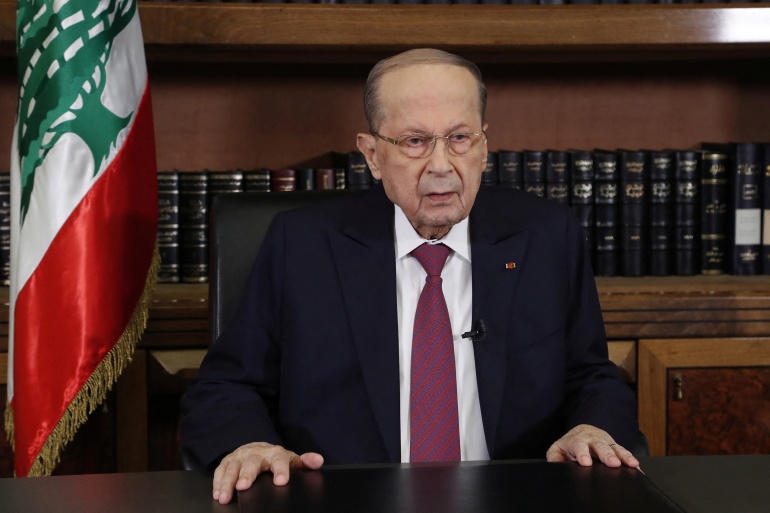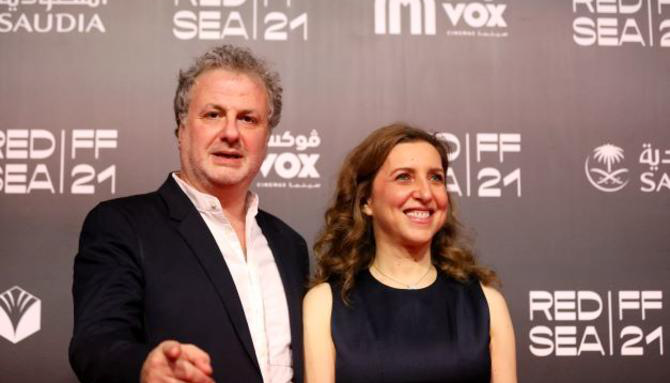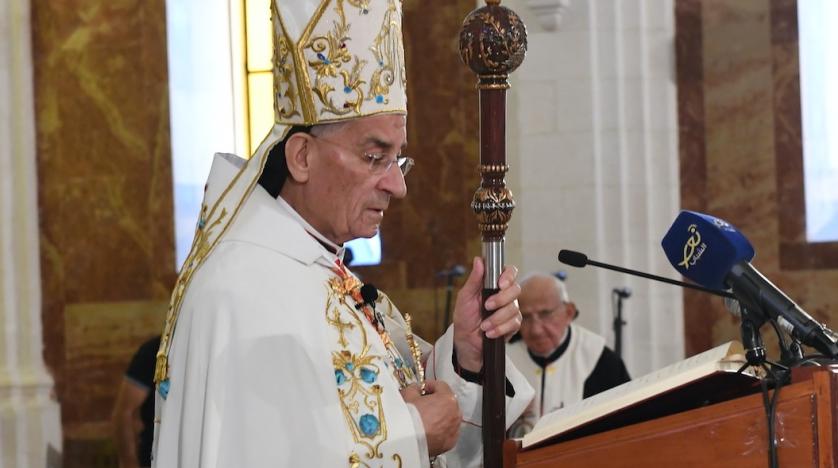
by NNA - President of the Republic, General Michel Aoun, affirmed that "From my position as the custodian of the constitution, I call for an urgent national dialogue in order to reach an understanding on three issues, and to work towards their approval later within the institutions, namely: Expanded administrative and financial decentralization. - The defense strategy to protect Lebanon. -A plan for financial and economic recovery, including the necessary reforms and a fair distribution of losses.
The President also clarified that he had called for more than one meeting and conference and proposed solutions, but the people of the organization refused to give up any gain, and did not take any account for the people, reiterating his call to dialogue for every Lebanese woman and man who desires the salvation of Lebanon. The President indicated that "In spite of everything, the solution is possible within the national reconciliation document, and it requires first accountability, that is, determining responsibility for the collapse, protecting people's money and returning it to depositors”. “The solution also requires moving to a civil state, and a new system whose main foundation is expanded administrative and financial decentralization, and the upcoming parliamentary elections should constitute a referendum on this basis” President Aoun said. In addition, President Aoun stressed that "Defending the homeland requires cooperation between the army, the people and the resistance, but the primary responsibility is for the state. Only the state sets the defense strategy and ensures its implementation”.

By LYNN TEHINI AND HAMZA MAKRAOUI -- arabnews.com -- The French-Lebanese production was born from a distant, but still vivid, memories of the Lebanese filmmaker. “Memory Box” deals with the separation of two young Lebanese women — one in Paris and the other in Beirut — who write and send each other recordings every day for six years. The two friends meet again in 2013 at an exhibition and discuss the notebooks and tapes that they gathered every day from 1982 to 1988. Joana, who lives in Paris, retrieves her letters and tapes, which arouses the curiosity of her daughter Alia. Thanks to these letters and recordings, the latter discovers what her mother thought and said when she was her age. For Hadjithomas, “conveying” is the keyword of this cinematographic adventure. ‘Khalil (Joreige) and I are artists; we worked a lot on the image and character of this film, paying attention to both its sound and pictorial dimension.’ Joana Hadjithomas, Lebanese filmmaker “I wanted to tell a story of women and that of three generations of women,” the filmmaker told Arab News. “I wanted to show another relationship to the war, away from the trauma, as seen in the eyes of the youth of the 1980s, driven by this crazy desire to live that was ours,” she said.
The film is a story of women, but, above all, a story of generations amid the disastrous civil war in Lebanon. “When I received an invitation for the film, I did not hesitate. I said to myself: ‘I want to meet this generation’,” Hadjithomas said. “Khalil (Joreige) and I are artists; we worked a lot on the image and character of this film, paying attention to both its sound and pictorial dimension. So we were keen to talk about the development of the film, to convey something of this experience,” Hadjithomas said. Her eyes shine as she recalls how the film was received by the different audiences who had the opportunity to watch it. “I feel overwhelmed every time,” she said. “Whatever their nationalities or background, people understood the movie.” Hadjithomas added: “Maybe it is because the film sheds light on a myriad of experiences and a lot of details that I have taken from my notebooks; maybe also because we see my real notebooks in this film and there is a transition between fiction and reality. Maybe, finally, because it is a story of women and the actresses have put a lot of themselves into it.” She added: “It is also a story of encounters. With Khalil, we met the actresses, we saw them, they inspired us.”
انا اعترف … قال رئيس الجمهورية العماد ميشال عون عشيَّة الميلاد، في لقائه الـمُفعَم بالروحانيات والمعاني الجميلة، إنَّ وصايا السيد المسيح في …

by aawsat.com -- Lebanon's Maronite Patriarch Beshara Al-Rai, stressed the importance of the country holding legislative elections next year as he delivered his Christmas sermon on Saturday. Al-Rai also called for the government to convene, saying that failing to do so sets a precedent that may hinder the function of future governments. Lebanon's cabinet, which is focused on restarting talks with the International Monetary Fund (IMF) to unlock much-needed foreign aid, has not met since Oct. 12, due to a dispute over a probe into last year's deadly Beirut port blast. "We support your commitment to holding the legislative elections," said Al-Rai, directing his speech to President Michel Aoun who was attending the sermon. "The elections are the guarantee that presidential elections will be held on time and it is an opportunity for change."
Parliament had voted for the legislative election to take place on March 27 but Aoun has said he would only sign a decree for them to take place in May. Al-Rai also offered his condolences to the families of the victims of the port blast which killed more than 200 people in August last year. "Our thoughts today are with the families of the port blast victims who are in pain because the judiciary is hindered and the fate of investigation is uncertain," he said. The explosion was caused by a large amount of ammonium nitrate stored unsafely for years with the knowledge of top officials, but more than a year on, no one has been held accountable. Hezbollah and its allies have pushed to remove the lead investigator of the explosion, accusing him of political bias.
Khazen History


Historical Feature:
Churches and Monasteries of the Khazen family

St. Anthony of Padua Church in Ballouneh
Mar Abda Church in Bakaatit Kanaan
Saint Michael Church in Bkaatouta
Saint Therese Church in Qolayaat
Saint Simeon Stylites (مار سمعان العامودي) Church In Ajaltoun
Virgin Mary Church (سيدة المعونات) in Sheilé
Assumption of Mary Church in Ballouneh
1 - The sword of the Maronite Prince
2 - LES KHAZEN CONSULS DE FRANCE
3 - LES MARONITES & LES KHAZEN
4 - LES MAAN & LES KHAZEN
5 - ORIGINE DE LA FAMILLE
Population Movements to Keserwan - The Khazens and The Maans
ما جاء عن الثورة في المقاطعة الكسروانية
ثورة أهالي كسروان على المشايخ الخوازنة وأسبابها
Origins of the "Prince of Maronite" Title
Growing diversity: the Khazin sheiks and the clergy in the first decades of the 18th century
Historical Members:
Barbar Beik El Khazen [English]
Patriach Toubia Kaiss El Khazen(Biography & Life Part1 Part2) (Arabic)
Patriach Youssef Dargham El Khazen (Cont'd)
Cheikh Bishara Jafal El Khazen
Patriarch Youssef Raji El Khazen
The Martyrs Cheikh Philippe & Cheikh Farid El Khazen
Cheikh Nawfal El Khazen (Consul De France)
Cheikh Hossun El Khazen (Consul De France)
Cheikh Abou-Nawfal El Khazen (Consul De France)
Cheikh Francis Abee Nader & his son Yousef
Cheikh Abou-Kanso El Khazen (Consul De France)
Cheikh Abou Nader El Khazen
Cheikh Chafic El Khazen
Cheikh Keserwan El Khazen
Cheikh Serhal El Khazen [English]
Cheikh Rafiq El Khazen [English]
Cheikh Hanna El Khazen
Cheikha Arzi El Khazen
Marie El Khazen